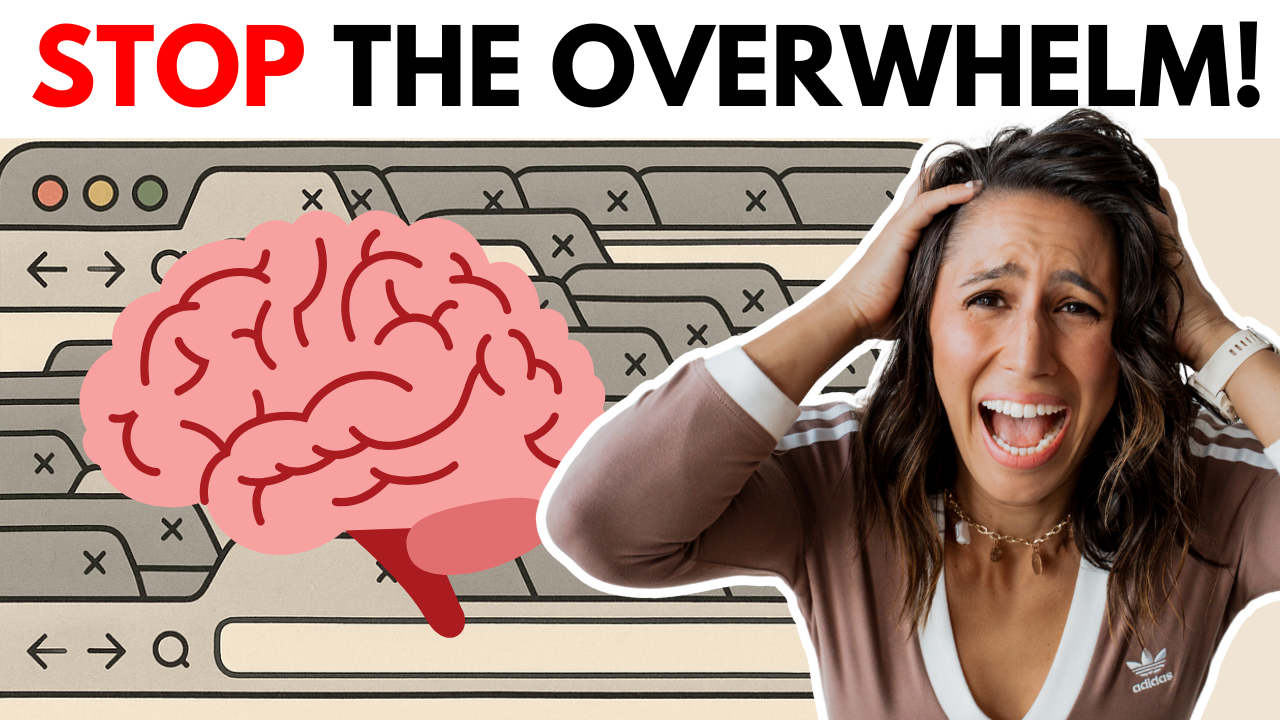When Your Brain Hits a Wall: My 6-Step Recovery for Mental Fatigue

Last Thursday, I hit a wall—hard.
I was in the middle of launching my pull-up program, riding high on motivation and productivity for over a week. Then suddenly, I found myself staring at my computer screen, completely paralyzed. I wasn't physically tired, but my brain felt like it had simply stopped working.
Sound familiar?
I was so frustrated with myself. Why couldn't I focus? Why did everything feel so overwhelming? That's when I realized I was experiencing something we don't talk about enough: mental fatigue.
What Mental Fatigue Really Looks Like
Mental fatigue isn't just being tired—it's that feeling when your brain has hit its absolute limit and cannot process one more thing. You might feel foggy, irritable, or even physically exhausted despite not doing anything physically demanding.
For me, it felt like having every single browser tab open at once. My mind was juggling the launch, content creation, my team's questions, and a million other tasks simultaneously. No wonder my mental computer crashed.
Why This Happens to High Achievers
Mental fatigue sneaks up on us, especially when we're:
- Overloaded with responsibilities
- Making too many decisions throughout the day
- Skipping mental breaks (guilty as charged)
- Running on chronic stress
- Thinking about everything at once instead of focusing on one step
The tricky part? We often push through until we suddenly can't anymore.
My 6-Step Recovery Plan
When I reached out for help (yes, even to ChatGPT!), I discovered these actionable steps that actually worked:
1. Stop Looking at the Whole Picture
Instead of staring at my overwhelming to-do list, I asked myself: "What's ONE thing I can do right now?" Just like telling a client to show up for a 3-minute warm-up instead of a full workout—sometimes that's all you need to build momentum.
2. Take an Actual Brain Break
I stepped away from my screen and did something completely unrelated. Pro tip: Set a timer for 5-10 minutes and do something calming. Even taking my dog out helped reset my mind.
3. Prioritize Sleep and Recovery
I started going to bed 30 minutes earlier and put my phone outside my bedroom. Mental fatigue is often tied to physical exhaustion—your brain won't function at its best without proper rest.
4. Simplify Your To-Do List
I picked just three priorities for the day instead of trying to tackle everything. What's the most important thing that needs to get done today? Everything else can wait.
5. Hydrate and Nourish Your Body
Sometimes mental fatigue is your body saying "I need fuel." I start every day with water (with electrolytes and lemon) before coffee, plus a breakfast high in protein and fiber.
6. Celebrate Small Wins
Every step forward matters, no matter how small. Maybe today you just drank enough water—celebrate that! Progress is progress.
The Reset That Changed Everything
After implementing these steps, I took a full day completely offline—no phone, no social media, no work. I slept, hung out with friends, and deep-cleaned my apartment (those baseboards were surprisingly therapeutic!).
By Monday, my mental fog had lifted completely.
Your Permission Slip to Pause
Here's what I want you to remember: You don't have to have it all figured out to show up. Mental fatigue doesn't make you weak—it makes you human.
The next time you feel that familiar fog rolling in, ask yourself: "What would the best version of me do right now? How can I take one step closer to that version today?"
Sometimes the answer is simply giving yourself permission to pause. Everyone can wait. Your mental health can't.
Mental fatigue is real, but it doesn't have to stop you. Take it one small, intentional step at a time.
What if it all goes right? What if it's already going right?


